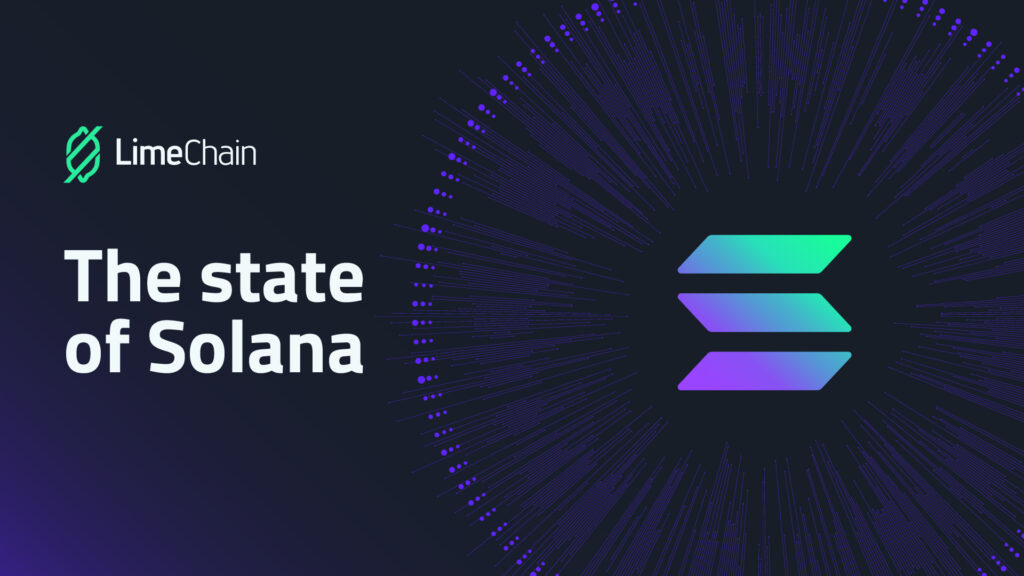The state of Solana ecosystem: What’s behind the protocol’s remarkable 2023 comeback?


Once considered among the greatest challengers to Ethereum’s dominance in the Web3 space, Solana has had its fair share of stumbles along the way. The protocol experienced a number of crashes last year, which eroded some of the trust in the protocol. Solana was also hurt after the collapse of the FTX exchange. The renewed focus on Ethereum L2s rather than alternative L1s also contributed to a waning interest in the Solana ecosystem.
However, Solana has mounted a comeback this year, with a slew of technical improvements and impressive features having bolstered the platform’s usability and reliability. At the same time, Solana has also landed important partnerships. All this has contributed to the steady growth of the Solana ecosystem.
A brief refresher on Solana
Before we explore the current state of Solana, let’s briefly go over the early days of the network.
From early on, Solana was billed as a strong challenger to Ethereum’s dominance as a platform for decentralized applications. And that was for a good reason. In short, Solana was designed around Proof of Stake from the start and was using PoS consensus well before Ethereum’s transition from the much more energy intensive Proof of Work. In addition, Solana also employed a novel Proof of History algorithm that allowed it to order transactions very efficiently. The PoH algorithm is the reason for Solana’s very high transaction speed. Even today, Solana is considered the fastest Web3 network out there.
Solana’s considerable advantages attracted many Web3 users and startups searching for a cheaper and more performant alternative to Ethereum. A perfect example of this was the boom of Solana-based NFTs that dominated the Web3 news cycle in late 2021 and attracted many users and Web3 developers to the Solana ecosystem.
However, the protocol also experienced a number of notable downfalls last year, including several network outages that raised serious questions about the protocol’s stability. Solana was also hurt by the FTX collapse, with its token experiencing a steep price drop reflecting the broader downfall of the crypto market in the wake of that debacle.
All that has coincided with a growing shift toward Layer 2 networks, which emerged as a way to scale Ethereum. Naturally, this led to a notable ebb in the demand for cheap Layer 1 alternatives to Ethereum.
A remarkable comeback
As we alluded earlier, Solana has been able to mount an impressive comeback this year. Even a cursory look at the SOL price would show us that the token has been crushing it in terms of market performance. And yes, 2023 has been a better year for cryptocurrencies overall, but we can’t chalk Solana’s performance up solely to the market rebound, as it’s clear that the token has outperformed the broader market by a significant margin. So the protocol must be doing something right for its token to have such a stellar year.
And yes, Solana has been doing some great things this year and its recent success has been primarily driven by a few key factors.
State compression for cheaper NFTs and data storage
Earlier this year, Solana Labs introduced state compression, an innovative feature enabling a much cheaper way to store data on chain. One of the first applications of that feature were compressed NFTs, aimed to bring the price of on-fungible tokens on Solana down by several orders of magnitude. Back in April, Solana Labs said that, thanks to state compression, minting 1,000,000 NFTs could cost as low as $110 (at April price levels of around $20 per SOL).
As mentioned above, the boom of NFTs was a major win for Solana in 2021, so it’s not surprising that Solana Labs are doubling down on what has proven to be one of the protocol’s strengths. But the fact that state compression affects the cost of storage of all kinds of data, not specifically NFTs, increases the utility of the protocol even further.
Greater stability
One of the major factors that led to Solana’s decline in 2022 was the number of significant outages its network experienced last year. However, Solana Labs has since shown a significant commitment to maintaining network stability and the protocol has enjoyed a remarkable turnaround in that area. This year, Solana has been much more stable, experiencing only one major outage that occured in early 2023.
Solana has also seen a major development in the area of client diversity, which is key for network stability. Firedancer is an independent validation client currently being built by Jump_, which seeks to further boost Solana’s stability and performance.
Major partnerships
Solana has also been able to secure some major wins in terms of partnerships, this year. A highlight in that regard was the integration of Solana Pay as a payment option with eCommerce giant Shopify.
The growing Solana ecosystem
Amid a slew of new features and updates, and strong market performance, the Solana ecosystem has also been steadily growing, attracting a growing number of dApps and increasing its userbase. The protocol also hit an all-time high in terms of Total Value Locked and it’s currently boasting TVL of over $650 million, according to data from DefiLlama.
Conclusion
Solana’s 2023 comeback is a big win not only for the alternative L1s, but for the Web3 industry as a whole. It demonstrates that there’s a lot going on outside of Ethereum and Ethereum-based Layer 2. The fact that one of most prominent alternative L1s out there is showing its resilience and ability to turn things around is very good news for the Web3 community.